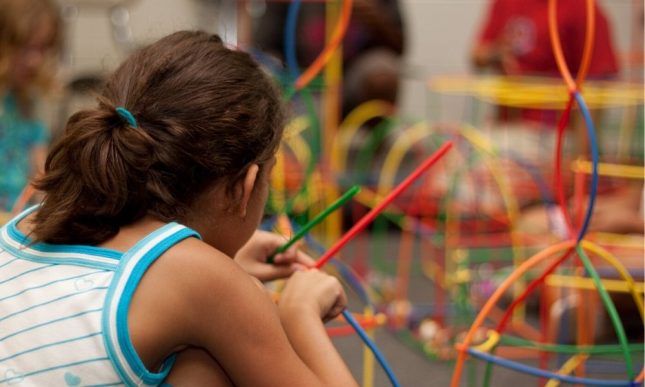For any parent the ‘starting primary school’ phase can be an emotional and worry-filled period. There’s changes of routine, environment, teachers to deal with, new expectations of your little one, new rules, new faces, and so on. For the child with special educational needs and his or her parent, all these new things can be exceptionally challenging.
When transitioning from pre-school to school the child with special educational needs requires the support and help of teachers and other professionals working alongside them and their parents. The two most important aspects of the transition is planning and communication. (For more information on planning for this next step and choosing a school read Choosing the right school).
For more general information on Starting School see School Ready.
How should the school plan for my child?
In order for your child to be delivered the most appropriate learning programme for them, there are a couple of processes that need to be set in motion. It is the school’s responsibility to set the ball rolling where these things are concerned. If they haven’t occurred, then it is up to you as a parent or caregiver to ask why.
Assessment
So the first thing that needs to happen is assessment of the student.
It’s very important that your child’s learning needs are assessed so the best possible programme can be developed and support can be provided for their learning.
The assessment the school does will most likely be based on one or more of the following as the school sees fit –
- Observation in different settings, for example, the classroom or playground. Interviews and discussions with your child, and with those closely involved with him or her.
- Formal, standardised tests.
- A curriculum-based assessment.
- Assessment of their learning environment.
- Assessment of how they learn, for example, do they work better when instructions are written, not oral.
- A review of records of your child’s activities, including school attendance.
- A portfolio of your child’s work.
IEP
Once an assessment of the student has been carried out an IEP will be put in place. The school is obliged to begin the process and set an Individual Education Programme in place.
An IEP ensures that a student who has special education needs is supported in their learning in a way that is appropriate to them.
An IEP is developed in a meeting between you as parents/caregivers, your child’s teacher, your child (if he or she wished to attend), and any appropriate specialists.
The aim is for all of you to set goals which relate to your child’s learning progress. These may be short or long term goals.
Because an IEP is a ‘living’ document and process it should be reviewed on a regular basis. It is the school’s responsibility to let you know when this occurs in the form of meeting so you can be a part of it.
For more information on IEPs read Special Education – IEP.
Accessing the Resources
Schools should have the information on all of the Government’s special education initiatives and you can call the Special Education Information Line on 0800 622 222. Student Support Development Officers and Facilitators based in Ministry of Education local offices can talk to you about how to access the resources that will best meet your child’s needs.
What exactly is the role of the school when my child starts school?
All schools have a responsibility to first and foremost provide a safe place for learning for every student.
Above and beyond this schools have responsibilities that relate directly to the children with special needs who attend their school.
These are to:-
- Establish a comprehensive special education policy with clear priorities. This is a policy that must be based on a range of National Education Guidelines and Curriculum Statements. This policy, and all others of the schools, are able to be requested and read by you as a parent.
- Provide programmes and teaching resources for students with special education needs through special education resourcing and operational funding. (See ORR article coming soon).
- Support teachers and other staff in their professional development in such areas as assessment and meeting special education needs.
- Inform parents or caregivers about the special education services available and how these can be accessed.
- Work with you and specialists and other agencies to assess your child’s special education needs.
- Develop an Individual Education Programme (IEP) for your child, and review it at least twice a year in a meeting with you, your child’s teacher and specialists as needed.
- Provide and oversee staff to teach students with special education needs for each school day. For example, a student should not be sent home because a staff member, such as a teacher aide, is absent.
- Provide frequent reports of your child’s progress.
- Regularly report, monitor and evaluate the effectiveness of learning outcomes.
- Ensure staff are appropriately trained and work professionally at all times.
It is so important that everyone recognize your child to be just as much a part and just as important in that school as any other child who attends there.
What should I be doing as a parent?
No one knows your child like you. This may be the first time you have been away from your child for the majority of the time each day. In the lead up to him or her beginning school one of the things you need to be doing is make a list/document of essential information relating to your child. Think about things like medical, dietary info, exercise or personal care requirements, where to reach you in an emergency, and who to contact should you not be available. Some of these things are required of all students, but can be crucial where the child with special needs is concerned.
Once your child starts school other responsibilities of yours include –
- Ensuring your child is enrolled and regularly attends school until they turn at least 16 years old.
- Letting the school know if your child will not be attending school on a particular day. This is particularly important where the school operates a monitoring system to ensure students arrive at school safely.
- Informing the school ahead of time if you need to take your child out of school for a special reason, such as a medical appointment.
- Make sure your child is safe with themselves and other students.
- Work with your school to identify your child’s needs, develop appropriate programmes and monitor their progress.
- Communicate to resolve problems as they emerge and to share ideas about what is working well.
- Take part in the development of IEPs, goal-setting, specific learning programmes and follow-up activities at home.
Maintaining a good line of communication with the school is paramount when your child has special education needs. A way to make sure this happens on a daily basis with little effort is to have a notebook for communication between you and your child’s teacher/s. This means events that may occur, extras that need to be taken in account, behaviours that were displayed can be recorded either at your end or the schools end and so aren’t forgotten. Speak with teachers about this idea to see if it works for them. They may have a better idea for keeping in touch.
What support is there at school for my child?
If your child has special education needs the school they attend in NZ provides support and services.
This assistance may include access to:
- specially trained teachers who work with students with learning and/or behaviour difficulties, for example, Resource Teachers: Learning and Behaviour (RTLBs) and Learning Support Teachers (LSTs)
- specially trained teachers for students with vision impairments (called Resource Teachers: Vision)
- teachers who work with children who have hearing impairments (called Resource Teachers: Deaf).
Most children receive special education support at the school they attend. But if your child has special education needs that are defined as high, staff at their school or early childhood education centre will coordinate extra services from GSE, or another fundholder of government money, such as a special school.





